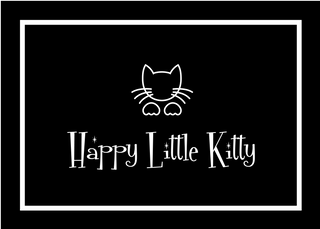Keeping Your Cat at a Healthy Weight
Watching your cat’s weight and helping them to stay healthy is such an important part of being a pet parent. When it comes to cats, it can be tricky to know when your little furball has gone from cuddly and chubby to overweight or even obese. Here’s the rundown on how you can tell if your feline friend is at a good weight and what you can do if they are not.

How Much Should My Cat Weigh?
Cats come in all shapes and sizes, so there isn’t one set answer for this question. Generally speaking, though, a healthy adult cat should weigh between 8-10 pounds (3.6-4.5 kg). If your cat falls within this range, then they are likely at a healthy weight. But what if they don’t?
What If My Cat Is Overweight?
If your kitty is carrying too much extra weight, the first thing you should do is take them in for a checkup with their veterinarian. It may be that there are underlying medical issues contributing to the problem that need to be addressed before any kind of dietary changes can be made.
Once any medical issues have been taken care of, then it’s time to start making some lifestyle changes for your cat! This means making sure that your cat gets plenty of exercise each day through interactive playtime sessions and switching them over to a nutritionally balanced diet specifically formulated for cats who need help managing their weight.
If necessary, you may also want to consider reducing the number of treats you give them on a daily basis as these can add up quickly and contribute significantly to their overall calorie intake!
How Can I Help My Cat Lose Weight?
Making sure that your feline friend stays active is an important part of helping them lose weight safely and effectively. While cats tend to get plenty of exercise while they sleep or groom themselves throughout the day, adding in interactive playtime sessions (such as chasing laser pointers or feather toys) will encourage them to move around more and burn off those extra calories!
Additionally, switching them over to a nutritionally balanced diet specifically designed for cats who need help managing their weight will also help them reach their ideal body condition over time.
Finally, try reducing the number of treats you give your cat each day so that they don’t end up consuming too many calories in one sitting!
Keeping track of your cat's weight is an important part of being a responsible pet parent. Knowing how much they should weigh as well as what signs indicate that they may be overweight or obese will ensure that you catch any potential health issues early on and take the necessary steps towards getting them back into shape!
With regular exercise and proper nutrition tailored specifically towards cats who need help managing their weight, you can keep your furry friend happy & healthy for years to come!
Related Articles:
What’s the Purrfect Diet for Your Cat?
The Pros and Cons of Meal Scheduling for Cats
How to Help Your Cat Reach a Healthy Weight
Don't Feed Your Cat These Foods!


Leave a comment